The cooperation of the media with civil society organizations is important, because they have the expertise, resources, research and data that can help in educating, preventing or working together in these areas. These were some of the topics discussed at the workshop “The Role of Newsrooms in Preventing Hate Speech, Discrimination and Disinformation”, organized by the Council of Media Ethics of Macedonia on 8 February 2021, with the support from the Canadian Fund for Local initiatives and Civica Mobilitas.
 Marina Tuneva, Executive Director of the Council for Media Ethics of Macedonia, informed that the most common violations of the professional and ethical standards in 2020 referred to Article 1 of the Code of Ethics, related to the truthfulness and objectivity of information published in the media. According to her, sensationalist reporting was noted in certain media, as well as a lack of objectivity when reporting about political entities, and not to forget the speculations in the media reporting which were reported to the CMEM. Only 5% of the reported cases were related to hate speech, which is the lowest percentage compared to previous years, informed Tuneva, noting that this percentage does not mean that this phenomenon has been eradicated, but rather that it may be more frequent on social media networks.
Marina Tuneva, Executive Director of the Council for Media Ethics of Macedonia, informed that the most common violations of the professional and ethical standards in 2020 referred to Article 1 of the Code of Ethics, related to the truthfulness and objectivity of information published in the media. According to her, sensationalist reporting was noted in certain media, as well as a lack of objectivity when reporting about political entities, and not to forget the speculations in the media reporting which were reported to the CMEM. Only 5% of the reported cases were related to hate speech, which is the lowest percentage compared to previous years, informed Tuneva, noting that this percentage does not mean that this phenomenon has been eradicated, but rather that it may be more frequent on social media networks.
In order to hear the voice of the journalists faced with hate speech and discrimination in their every day work, Ognen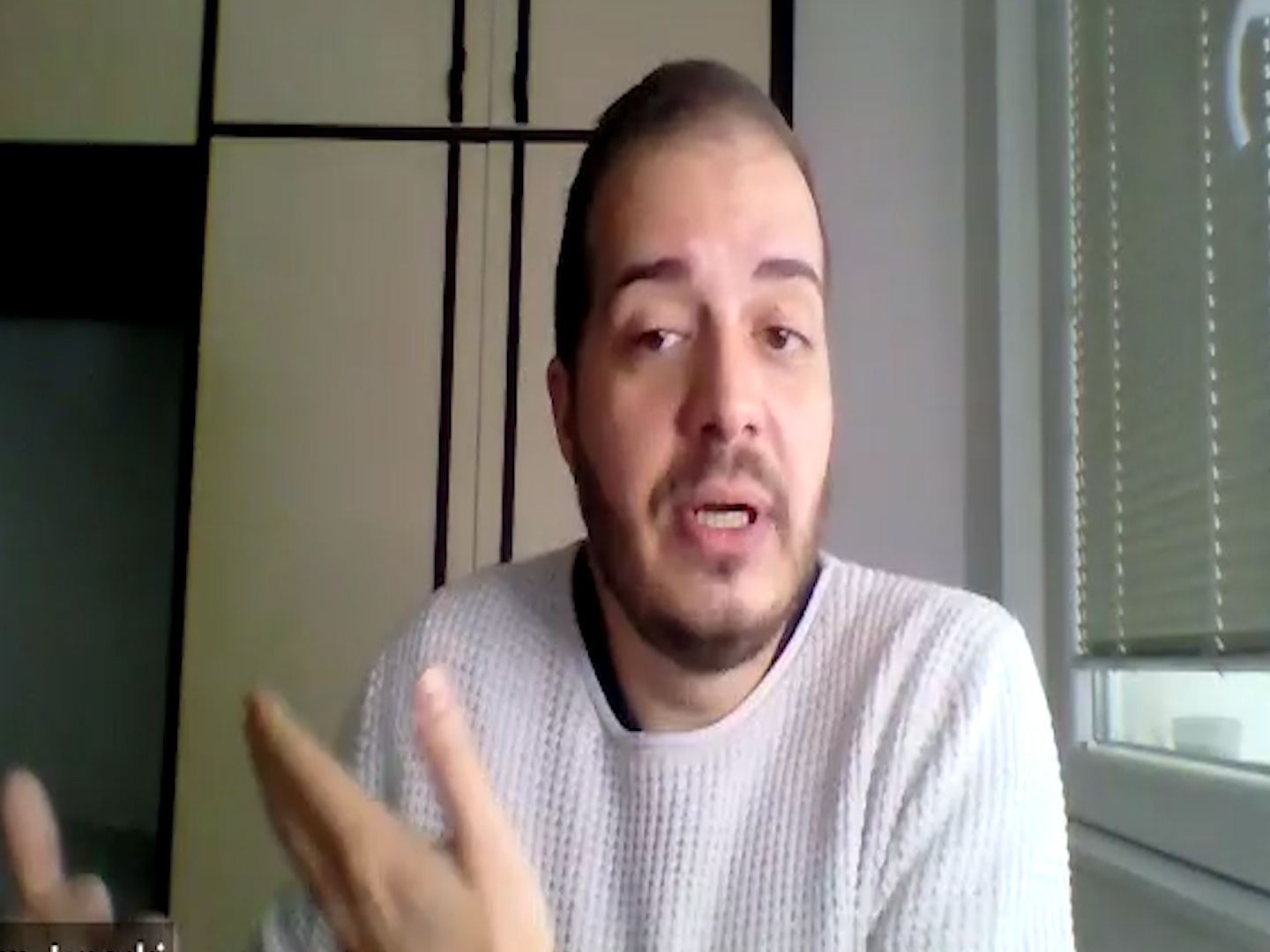 Janeski, editor and host of TV 24, presented examples from his 13 years of experience in working on call-in shows and live shows. According to him, skill and experience are especially important when a journalist has to deal with a specific live situation in which the viewer uses hate speech. “Hatred, intolerance, lack of a sense of responsibility for what is said, are much more present today than before. This situation is mirrored from one social media to another, and then to the traditional media”, said Janeski. According to him, the host has a great responsibility in managing the shows. “No matter how much you explain regarding what is hate speech versus freedom of expression, and even if you ask the viewers to be careful with respect to the manner in which they are communicating, that will last for only a week or two. Then, things go back to the way they were, and you have to ‘guide’ the communication again”, adds Janeski. Topics related to interethnic issues, domestic or foreign policy, in particular, provoke harsher rhetoric and hate speech, he concludes.
Janeski, editor and host of TV 24, presented examples from his 13 years of experience in working on call-in shows and live shows. According to him, skill and experience are especially important when a journalist has to deal with a specific live situation in which the viewer uses hate speech. “Hatred, intolerance, lack of a sense of responsibility for what is said, are much more present today than before. This situation is mirrored from one social media to another, and then to the traditional media”, said Janeski. According to him, the host has a great responsibility in managing the shows. “No matter how much you explain regarding what is hate speech versus freedom of expression, and even if you ask the viewers to be careful with respect to the manner in which they are communicating, that will last for only a week or two. Then, things go back to the way they were, and you have to ‘guide’ the communication again”, adds Janeski. Topics related to interethnic issues, domestic or foreign policy, in particular, provoke harsher rhetoric and hate speech, he concludes.
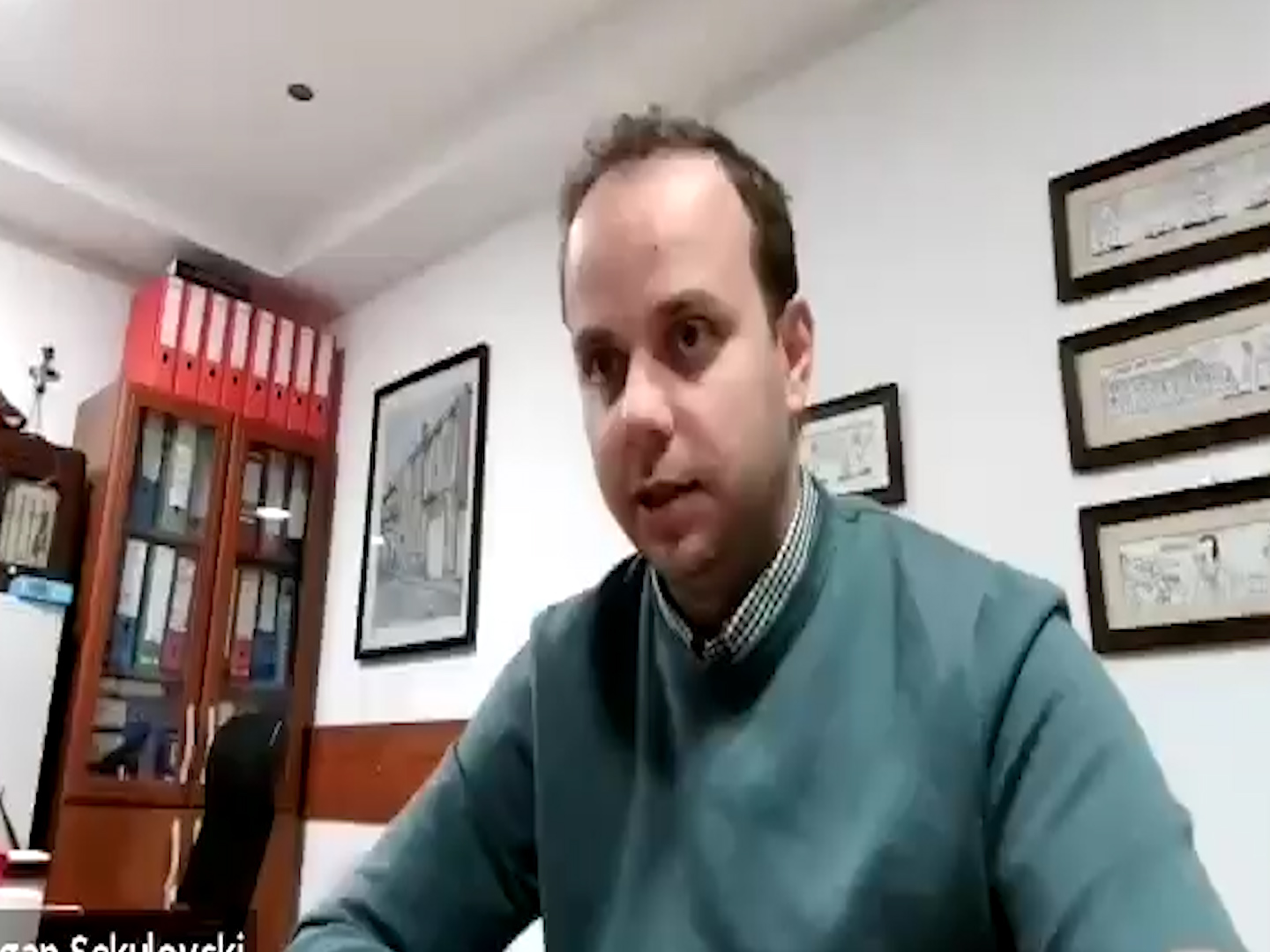 Journalists should report all cases of hate speech to the Ministry of Interior, especially when there are calls for murder, appealed Dragan Sekulovski, Executive Director of the Association of Journalists of Macedonia, which is trying to register all reports in relation to which the institutions have reacted.
Journalists should report all cases of hate speech to the Ministry of Interior, especially when there are calls for murder, appealed Dragan Sekulovski, Executive Director of the Association of Journalists of Macedonia, which is trying to register all reports in relation to which the institutions have reacted.
Live shows and the events presented or discussed therewith are much more complicated and much more powerful, says Stole Naumov, editor and host of the call-in show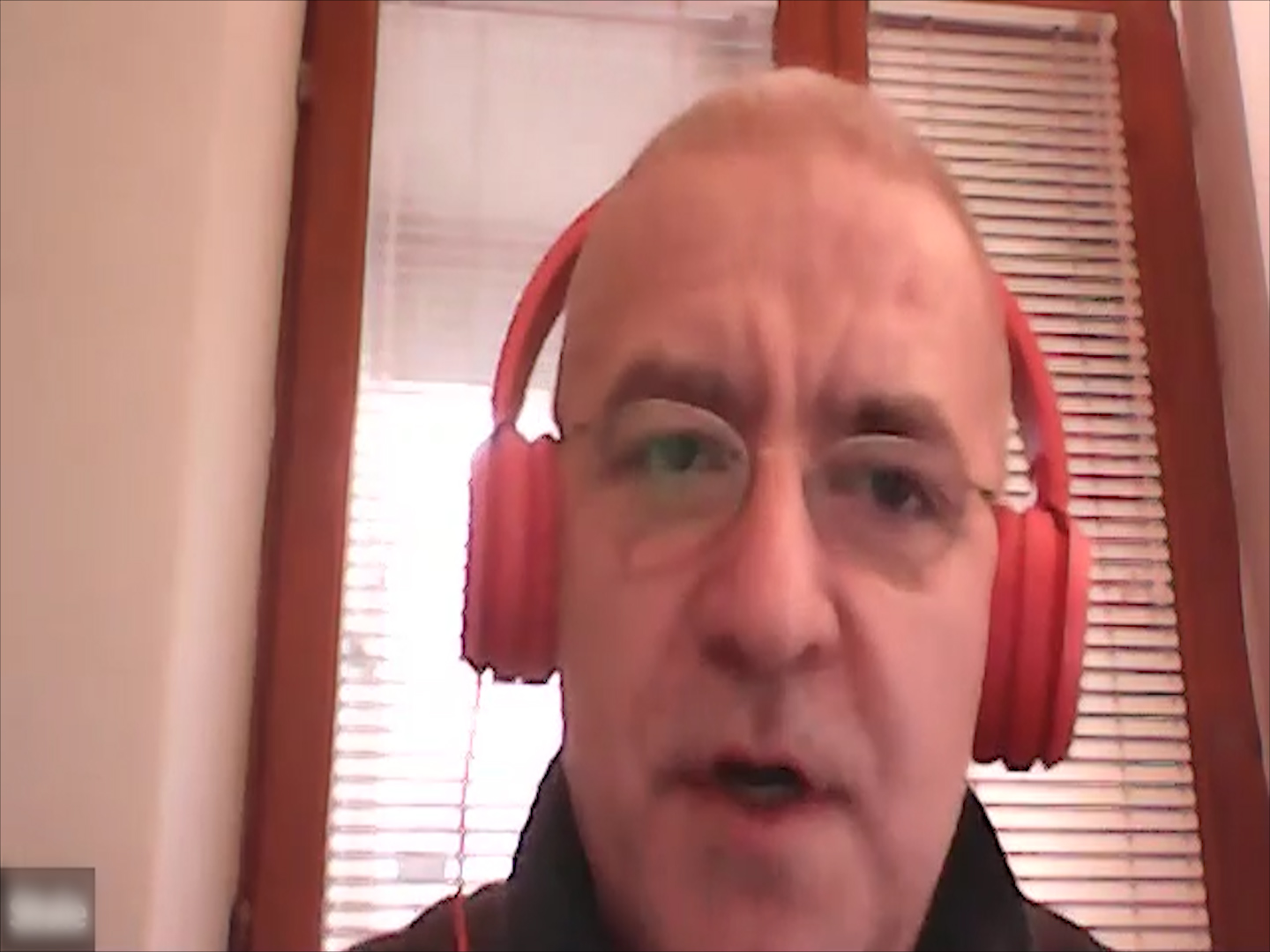 “Stadion” [Stadium] on Radio Kanal 77 [Channel 77]. According to him, when calling live, the citizens are acting in a cultured and responsible manner. “Compared to hate speech found on social networks, the callers in these shows are amateurs”, he said. Disinformation today can be published much easier, since in the past there were filters – editors, and today, every listener, viewer, reader should be their own editor, says Naumov. “However, that requires knowledge, literacy, you have to follow everything that happens, to have pre-information, to have context. Fighting disinformation requires more knowledge”, concludes Naumov.
“Stadion” [Stadium] on Radio Kanal 77 [Channel 77]. According to him, when calling live, the citizens are acting in a cultured and responsible manner. “Compared to hate speech found on social networks, the callers in these shows are amateurs”, he said. Disinformation today can be published much easier, since in the past there were filters – editors, and today, every listener, viewer, reader should be their own editor, says Naumov. “However, that requires knowledge, literacy, you have to follow everything that happens, to have pre-information, to have context. Fighting disinformation requires more knowledge”, concludes Naumov.
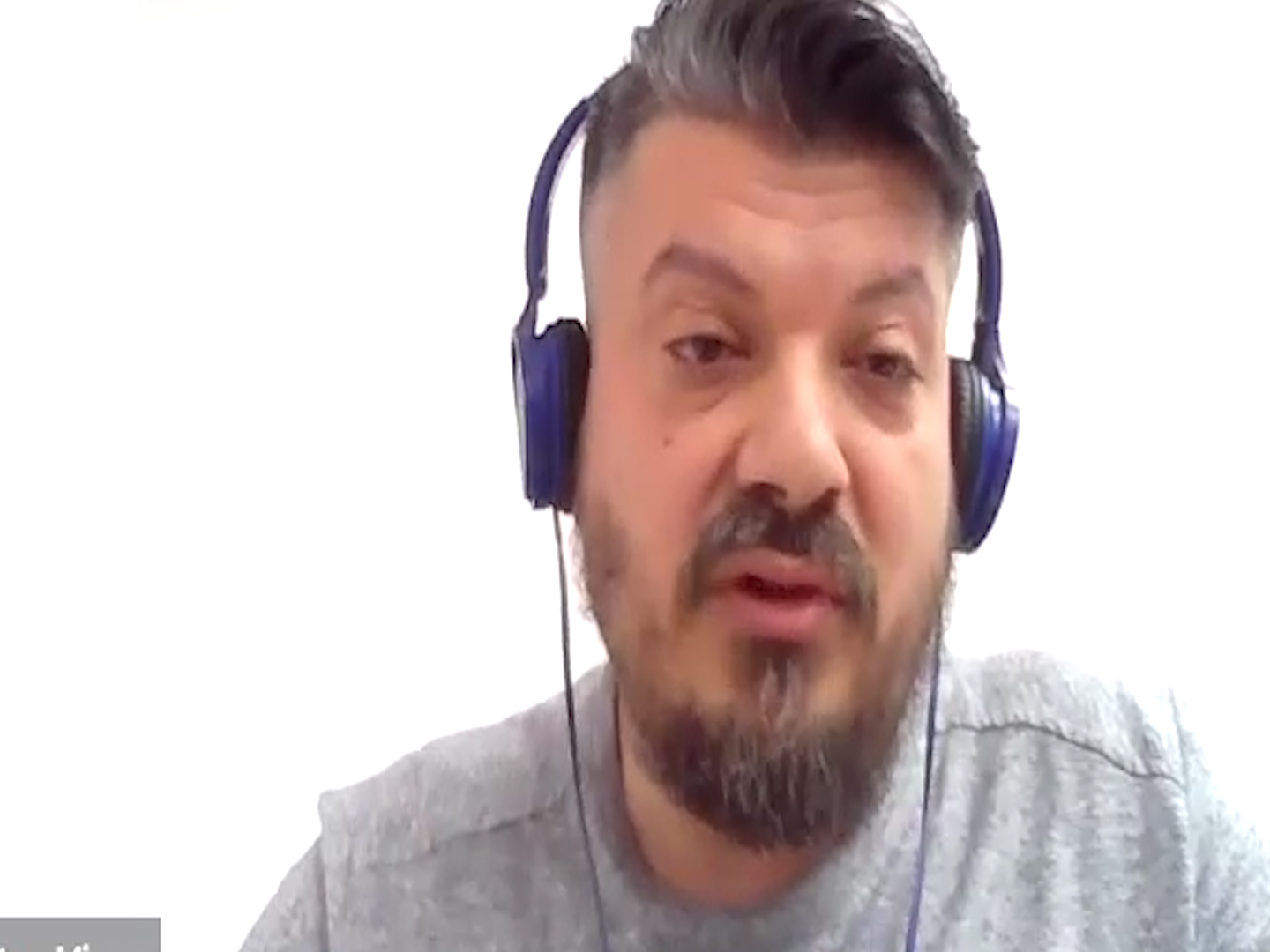 Dimitar Micev from TV Vis Strumica underlined that although their television does not have those types of shows, still, his colleagues moderate all comments on Facebook, YouTube and social media networks and analyze the user comments, especially those that contain insults and abuse. “Practically, we are facing a problem with the new generations who publicly, with name and surname, spread all kinds of information, fake news, hate speech”, concludes Micev.
Dimitar Micev from TV Vis Strumica underlined that although their television does not have those types of shows, still, his colleagues moderate all comments on Facebook, YouTube and social media networks and analyze the user comments, especially those that contain insults and abuse. “Practically, we are facing a problem with the new generations who publicly, with name and surname, spread all kinds of information, fake news, hate speech”, concludes Micev.
Journalist Santa Argirova emphasized the role of editors in preventing the publishing of inaccurate, erroneous or distorted information and images, which often include headlines or announcements that do not correspond to the text or article. “When there is a lack of clear and prominent editorial policy, which implies the rule of ethical standards, that is the ‘red flag’ that indicates suspicious content. The first rule we all learn is that you should consult both parties. But how is that reflected here? Journalist will ask both parties and present the story from both sides. But, where is the topic, what is the question that we are discussing? Journalists very often do not explain enough to us about the issue at hand. They do not give us enough facts to assess which side is right. Additionally, we need to know all the information on a particular topic, for which journalists should prepare for themselves”, stated Argirova.
announcements that do not correspond to the text or article. “When there is a lack of clear and prominent editorial policy, which implies the rule of ethical standards, that is the ‘red flag’ that indicates suspicious content. The first rule we all learn is that you should consult both parties. But how is that reflected here? Journalist will ask both parties and present the story from both sides. But, where is the topic, what is the question that we are discussing? Journalists very often do not explain enough to us about the issue at hand. They do not give us enough facts to assess which side is right. Additionally, we need to know all the information on a particular topic, for which journalists should prepare for themselves”, stated Argirova.
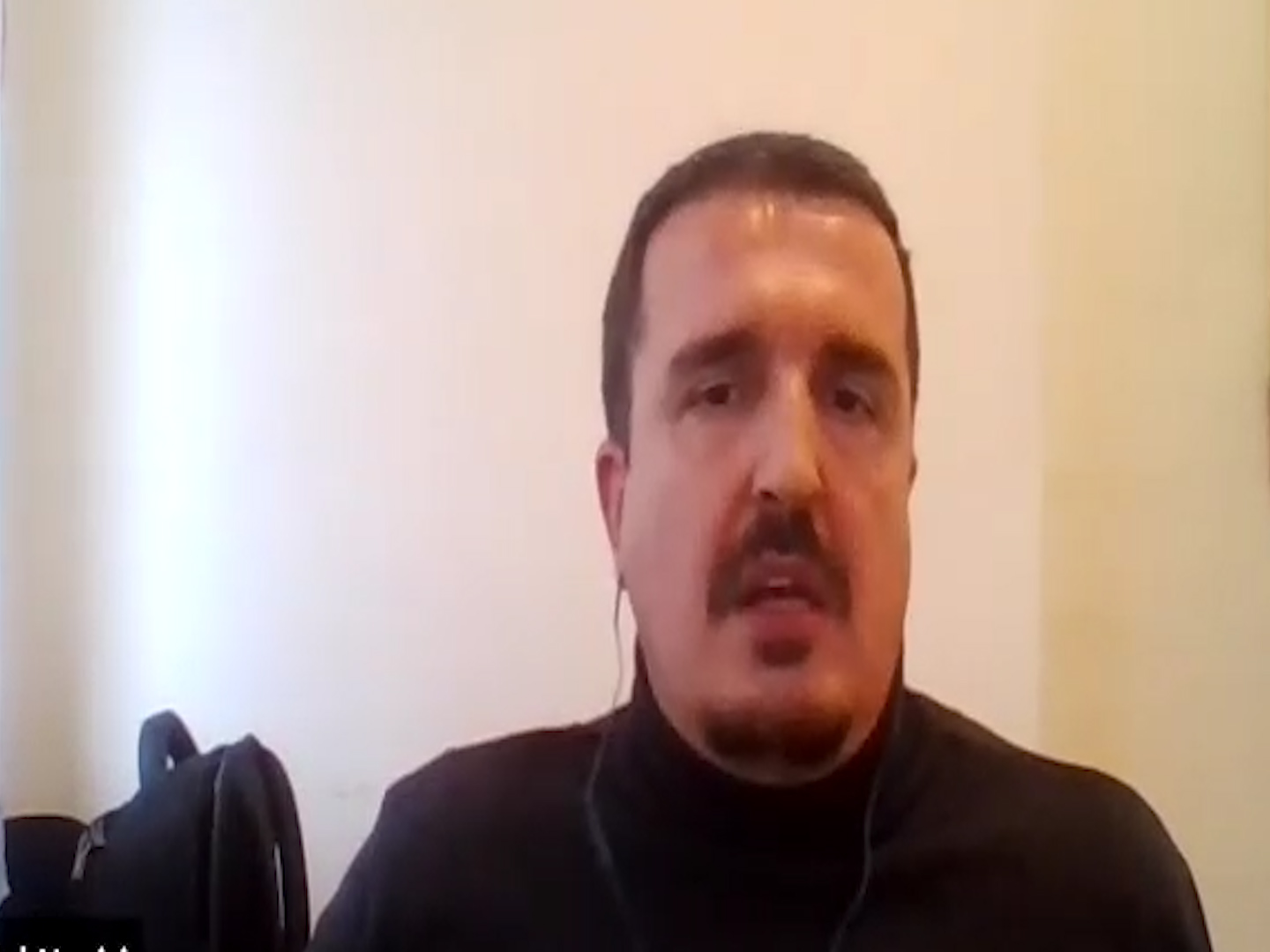 According to Xhelal Neziri of the Center for Investigative Journalism-SKUP, we should pay attention to the fact that certain centers of political power may abuse call-in shows to create a certain perception that the voice of the people is for or against a particular topic depending on their interest. Therefore, he recommends choosing topics carefully, because the audience cannot be competent for every opened topic. According to him, it is important to detect whether the show itself encourages free opinion of the citizens or enables the enforcement of political party propaganda and organizing political party members to call and support certain views.
According to Xhelal Neziri of the Center for Investigative Journalism-SKUP, we should pay attention to the fact that certain centers of political power may abuse call-in shows to create a certain perception that the voice of the people is for or against a particular topic depending on their interest. Therefore, he recommends choosing topics carefully, because the audience cannot be competent for every opened topic. According to him, it is important to detect whether the show itself encourages free opinion of the citizens or enables the enforcement of political party propaganda and organizing political party members to call and support certain views.
Dragan Sekulovski from AJM emphasized that the low level of political culture of most politicians from all parties strongly contributes to the quality of public debate. The style of expression with vulgar and inappropriate words that the leaders of the political parties use in debate shows are later on imitated by the citizens in the call-in shows, underlines Sekulovski.